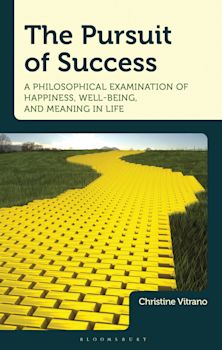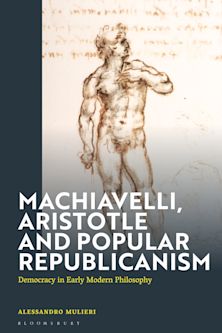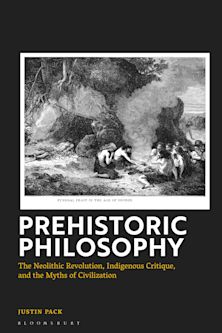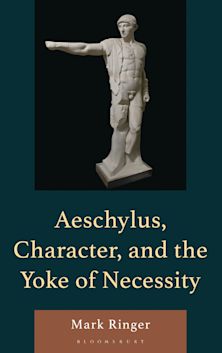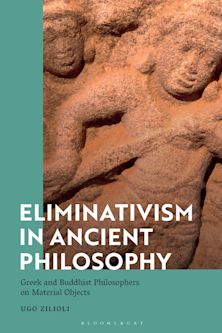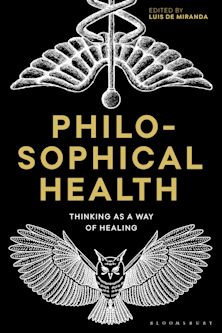- Home
- ACADEMIC
- Philosophy
- Ancient Philosophy
- Necessity and Philosophy in Plato's Republic
This product is usually dispatched within 1 week
- Delivery and returns info
-
Free CA delivery on orders $40 or over
You must sign in to add this item to your wishlist. Please sign in or create an account
Description
Necessity and Philosophy in Plato’s Republic offers an interpretation of the concept of necessity in what is perhaps Plato’s most read dialogue. The word “necessity” (anagke) appears hundreds of times in the text in many grammatical forms, about as often as the frequently studied term “good.” Yet, there exists little commentary on the ontological status of necessity. Russell Winslow argues that when the reader analyzes the Republic through the lens of necessity, a novel interpretation emerges. On the one hand, the concept of necessity articulated in the Republic is original, insofar as it includes phenomena not commonly attributed to necessity. Namely, necessity governs not only those motions that do not vary and cannot be otherwise, but also those that wander randomly by erotic desire and by chance. Necessity in the Republic, thus, occasions a rethinking of what this crucial concept might mean for us. On the other hand, interpreting the Republic through the lens of necessity allows a reading of Plato to develop that emphasizes the structures of finitude in human life and the limits of reason. This book argues, therefore, that philosophy remains subtended and limited by necessity in unavoidable ways.
Table of Contents
Introduction
Chapter 1: Philosophical Nature: Natural Necessity
Chapter 2: The Necessity of the Greatest Study: The Good
Chapter 3: Child of the Good: on Light and Desire
Chapter 4: Necessity in the Intelligible Region of the Divided Line
Chapter 5: Necessity in the Cave
Chapter 6: Necessity and the Highest Studies
Chapter 7: Necessity and the Song itself: Dialectic
Chapter 8: On Bastards and Orphans
Chapter 9: Necessity and Democracy
Chapter 10: The Spindle of Necessity
Bibliography
Product details
| Published | Aug 01 2024 |
|---|---|
| Format | Hardback |
| Edition | 1st |
| Extent | 264 |
| ISBN | 9781666958577 |
| Imprint | Lexington Books |
| Illustrations | 3 BW Illustrations |
| Dimensions | 238 x 159 mm |
| Publisher | Bloomsbury Publishing |
About the contributors
Reviews
-
Taking inspiration from a contrast between necessity and philosophy introduced by Adeimantus, Winslow's exegesis is a tour de force in Platonic interpretation, which investigates necessity wherever it occurs in Plato's dialogues, bringing other dialogues to bear on encounters with necessity in the Republic … A painstaking and penetrating work of interpretation … The result is a demanding read, but one which promises exactly the kind of turning around that it describes.
Choice
-
In the past few decades, there has been significant attention paid to the ways in which vegetal and non-human animal life figures centrally in the drama of Plato's masterpiece and to the ways in which these representations compare to the depiction of material and soul, as creation and creature, in Timaeus. Winslow draws upon the findings of this important work to offer the first comprehensive analysis of the system of necessity that undergirds, or perhaps to stay with his organicism, provides the fertile soil for the contest of the just and unjust soul that constitutes the central argumentative concern of Republic. However intrinsically attuned other readers of Plato may be, we all stand to benefit greatly from careful consideration of this genuinely novel reading of this incredibly well-read text.
Michael Weinman, Indiana University
-
“It’s uncommon at this point in the history of philosophy to offer something novel regarding Plato, let alone about his Republic, but Russell Winslow has done so in the beautifully written and well-argued Necessity and Philosophy in Plato’s Republic. Winslow reinterprets the Republic on the basis of a “destabilizing irrationality” at work within its concept of necessity, an irrationality that betrays a tragic finitude inherent in human life and logos. Encountering this finitude, the book argues, produces the art forms of tragedy, comedy, and philosophy. Winslow’s book is a welcomed challenge to revisit and re-think a dialogue that has become perhaps only too familiar.”
Sonja Tanner, University of Colorado

ONLINE RESOURCES
Bloomsbury Collections
This book is available on Bloomsbury Collections where your library has access.











